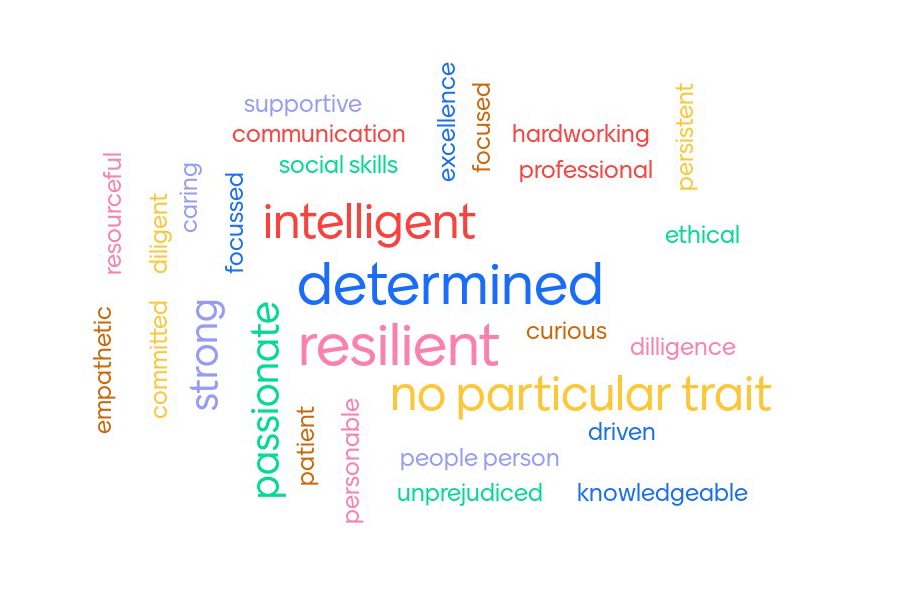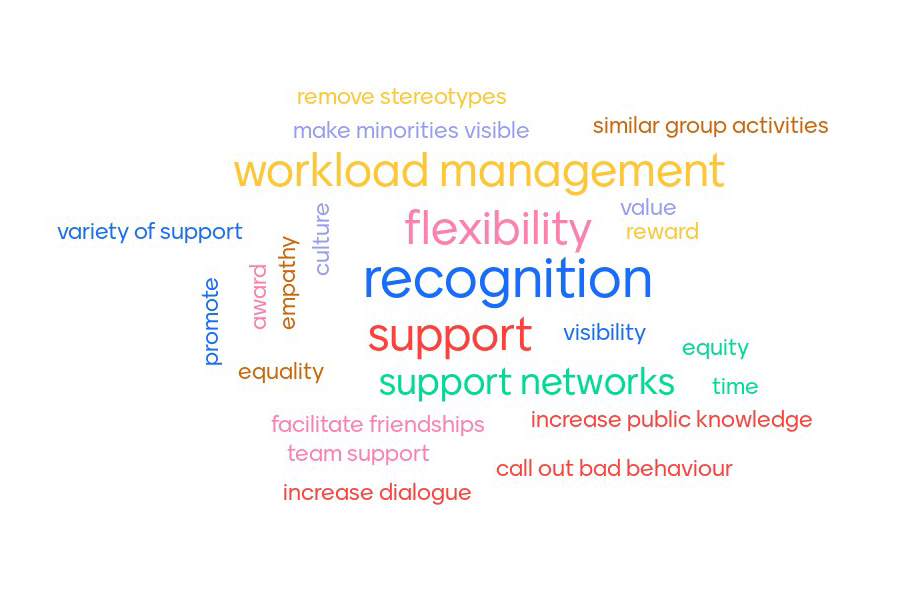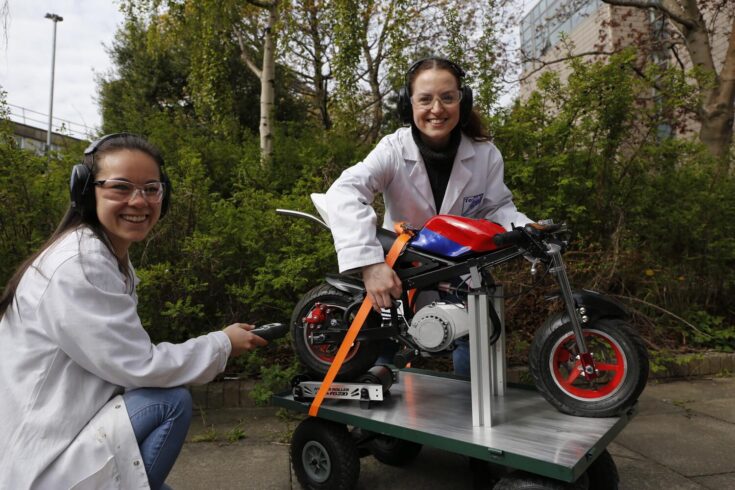We are all acutely aware that we’re currently living in tough times; with challenges around finances, race and gender inequalities and the societies we live in, making headlines on a daily basis.
Addressing the challenges
To play their role in addressing some of these challenges, UK Research and Innovation (UKRI) and the councils have been developing equality, diversity and inclusion (EDI) action plans to address challenges experienced by people and teams.
In combination with these activities is an increasing awareness of the difficulties faced in the field, particularly by women and minority groups. A lack of public understanding of engineering as a discipline has resulted in persisting stereotypes around the work and people involved.
International Women in Engineering day
International Women in Engineering day is an excellent and timely opportunity to reflect on these matters. And to examine what the Engineering Early Career Forum (ECF) brings to the field in terms of celebrating and supporting all those, but particularly women, working in engineering.
Following on from discussions held in the Engineering and Physical Sciences Research Council (EPSRC) Engineering ECF and the Strategic Advisory Team (SAT)-ECF EDI working group, all SAT and ECF members were asked to feed into the generation of word clouds. First looking at what kind of person, particularly those who identify as women, works in engineering, and secondly how we can action wellbeing in engineering. Responses were anonymous, all participants agreed to have their responses included in this blog, and the data will be deleted upon publication.
Readers should note that in some instances, responses from participants were amalgamated to increase clarity of the word cloud. No responses were added or removed.
What personality traits do you associate with (people who identify as) women, who work in engineering?
Word cloud one

Description of word cloud one
The word cloud shows participants’ response to the question: ‘What personality traits do you associate with (people who identify as) women, who work in engineering?’ The font size indicates which associations were most common, with the most popular being:
- Determined.
- Resilient.
- No particular trait.
- Intelligent.
- Strong.
- Passionate.
Resilience and determination
There is a theme of both ‘resilience’ and ‘determination’ running through the feedback. Whilst similar in meaning, there are nuances in how the words are applied.
To be determined, strong and diligent are traits which belong to a person. Resilience and persistence, whilst often associated with a person who is determined to achieve something, is actually a response to an adverse situation. The definition of resilience is, to some extent, context dependent and encompasses the ability to withstand adversity and recover from difficult life events.
The American Psychologically Association define resilience as the “process and outcome of successfully adapting to difficult or challenging life experiences, especially through mental, emotional, and behavioural flexibility and adjustment to external and internal demands”.
No particular trait
Another response, given in the word cloud, is ‘no particular trait’. In a society where social expectations are heavily influenced by direction given by the media and social media, it is important to note that perhaps we have been socially conditioned to commend specific traits in women.
Would responses to the question ‘what personality traits do you associate with people who identify as men, who work in engineering’ have an overwhelming consensus of resilient and determined? If not, then should we expect these to be prominent characteristics of women who work in engineering? Whilst celebrating the achievements of women in engineering, it is important to note that in reality, people who identify as women should not need any particular traits to thrive as an engineer.
How do we increase wellbeing in engineering? Particularly for women and people in minority groups?
Word cloud two

Description of word cloud two
The word cloud shows participants’ response to the question: ‘How do we increase wellbeing in engineering? Particularly for women and people in minority groups’. The font size indicates which associations were most common, with the most popular being:
- Support.
- Recognition.
- Flexibility.
- Support networks.
- Workload management.
Support
The term ‘support’ was consistently raised as a means to increase wellbeing in the engineering community. Yet this term can infer different things, depending on context.
When amalgamating responses in this word cloud, the distinction between support through a social lens, meaning support networks (also described in the responses as support groups and team support), and a broader definition was retained.
One respondent, answered with a ‘variety of support’ which summarises the breadth of this term; something that is analogous with the breadth of diversity of people in the engineering community. Social support, whether your immediate team colleagues or people working in the same field at a different organisation, has immense value in terms of a sense of belonging and understanding.
Yet, support also encompasses the more specific processes and interventions needed by people who intersect multiple protected characteristics. As such, an intersectional approach to inclusion, would provide support (as required) for people in and across marginalised group. This poses a challenge, and also an opportunity for meaningful change.
Recognition
Of the multifaceted issues involved in increasing wellbeing, ‘recognition’ was a strongly identified theme. This encompasses multiple aspects including recognition, and reward, of both (continued) effort and the ability to face day-to-day challenges.
In addition, the benefit of sharing good practice and positive outcomes at all levels across the field, and most importantly a mutual responsibility for increasing and broadening all types of available support, were pinpointed.
A personal reflection from the ECF is the shared sense of community and support that being part of such a group provides for some this includes forming a network not readily available to them through their place of employment, field or location.
Visibility
Visibility was also suggested to actively contribute to the wellbeing of engineers. Visibility helps challenge biases and stereotypes that hinder the progress of engineers. It provides representation and role models, inspiring others to pursue careers in the field.
Visibility has the potential to foster an inclusive culture that values diversity and celebrates achievements. However, it is important to recognise that visibility alone may not be sufficient to address all the challenges and systemic barriers faced by engineers, particularly women and people in minority groups. It is crucial to accompany visibility with supportive and inclusive environments, equal opportunities, and proactive measures to address biases and discrimination.
Final thoughts
The representatives, Andrews, Yuan and Thomas-Seale, of the ECF take this opportunity to recognise and celebrate the many different positives to being a woman in engineering, and the strengths that women bring to the field.
It is important to note the range of positive traits that equate to skills, commitment and innovation, whilst carefully considering the real-world problems that need addressing. We do not shy away from recognising the challenges faced, the input of ongoing effort and the issues still to be solved, but we highlight that engineers, of all genders, are increasingly dedicated to improving recognition, visibility and support for all in the field. Only through doing this can worldwide innovation reach its maximum potential for all.
The ECF plays an important role in facilitating these discussions and providing safe networks for those involved. We would recommend that more of these kinds of groups were set up and available, across the field as a whole. This would allow more engineers to benefit from involvement, from both professional and wellbeing perspectives, with facilitated discussions and provision of safe networks to enable a more inclusive environment for all.
Top image: Credit: UKRI



